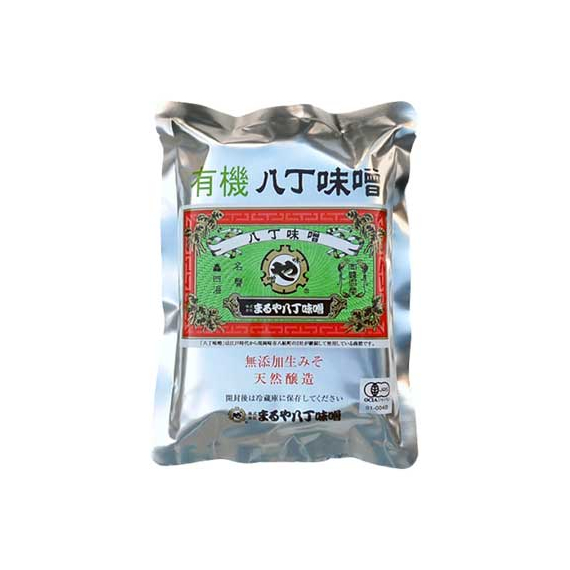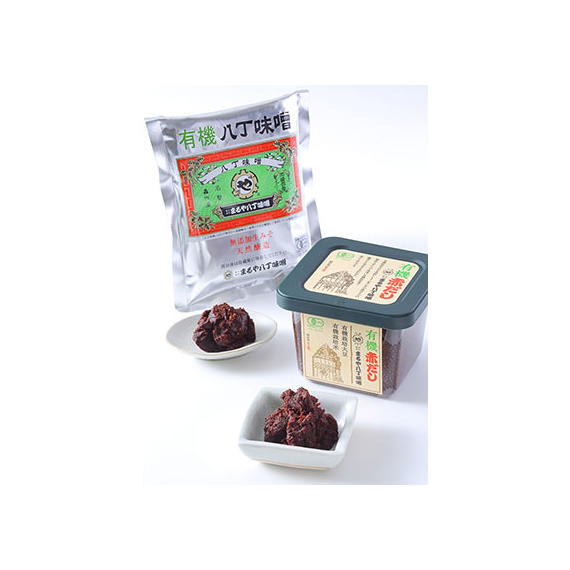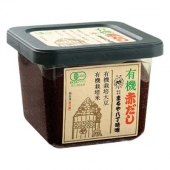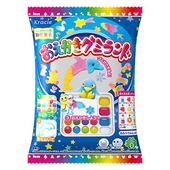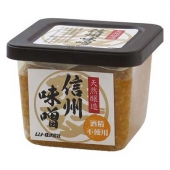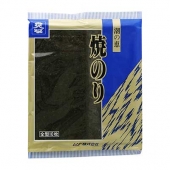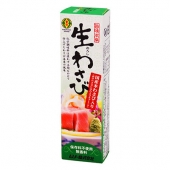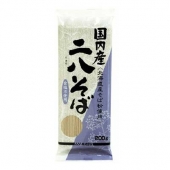Maruya Hatcho Miso Organic органическая соевая мисо паста
- — 50% предоплата на первый заказ
- — Все официальные гарантии, работаем с 2010 года, оплата на юрлицо, выдаем чек
- — Аутентичные товары с внутреннего японского рынка со свежими датами производства
- — Вы не несете рисков по порче/непоступлению/несоответствию товара. Если что-то не так, сделаем возврат денег
The main ingredients are organic soybeans and salt. No food additives are used. Naturally fermented without additives, using a traditional production method that pays special attention to the technology. Gluten-free. Organic soybeans, certified according to JAS standards, are used to produce miso with the addition of starter culture. A minimal amount of water and salt is used for preparation, then the mixture of starter culture and water is placed in a wooden barrel, with heavy stones stacked in a conical shape on top. After this, natural fermentation occurs over two years (two summers and two winters). Organic Hattou Miso has been certified for organic production according to JAS standards (certification number 01-004B).
Hattou Miso is classified as "positive" (Yang) in macrobiotics. Gluten-free, vegan, and no added seasonings (No MSG added). Hattou Miso has been produced since the Edo period by two companies in the Hattou area of Okazaki city. The name Hattou Miso comes from the Hattou area (formerly Hattou village), which is located approximately 870 meters from Okazaki Castle in Aichi Prefecture. This area was an important hub for both water and land transport, where the Yahagi River and the old Eastern highway intersected. During the Edo period, there was a dock and a salt market here, from where soybeans and salt were brought by river transport to produce miso.
Maruya Hattou Miso was founded in 1337 (second year of the Engen era) in this very Hattou area, and its founder, Miyadziemon, began producing soy sauce and miso.
Expiration date: as indicated on the packaging (approximately 1.5 years from the production date).
Storage: Store at room temperature, avoiding direct sunlight.


